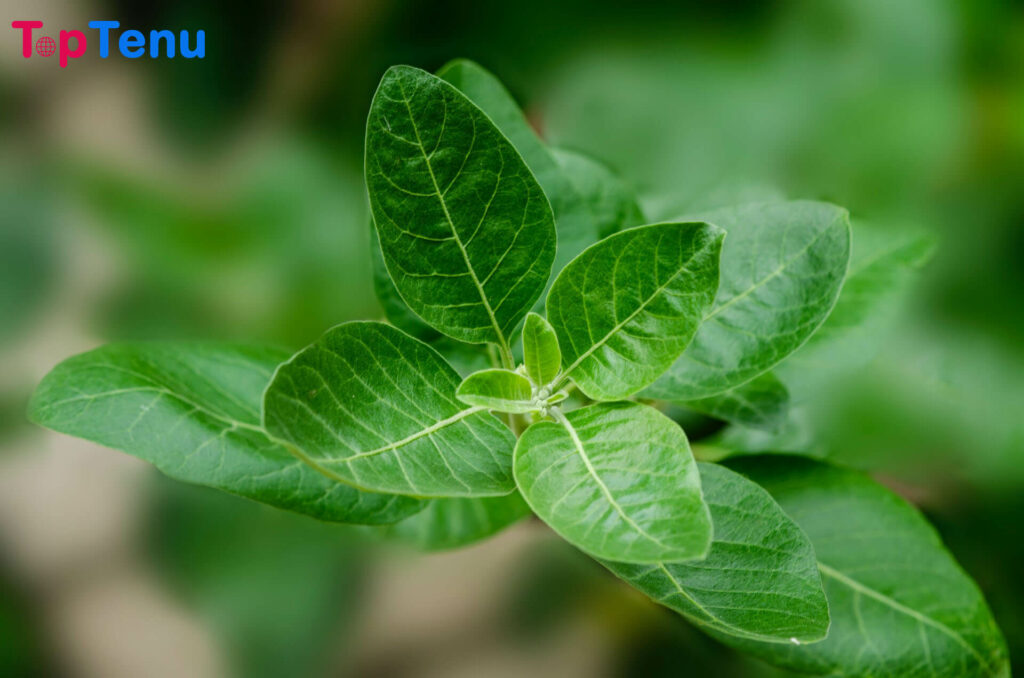15 Proven Benefits of Ashwagandha

Ashwagandha, also known as ginseng, has several health benefits, including lowering blood sugar levels, fighting cancer, reducing stress and anxiety, and increasing fertility in men.
It also helps prevent arthritis, asthma, high blood pressure, and rheumatism. Additionally, ashwagandha increases the supply of antioxidants and modulates the immune system. It also has antibacterial and anticonvulsant properties.
What is Ashuaganda (Indian Ginseng)?
Ashwagandha (Withania somnifera) is a medicinal herb that has been used in Ayurvedic and Chinese medicine for thousands of years. It is an adaptogen with the ability to help the body manage stress. It belongs to Solanaceae and is also known as Indian Ginseng or Winter Prunus.
The use of Ashwagandha for hundreds of years has sparked the curiosity of modern medicine, leading to an interest in investigating the medicinal properties of the plant. Preliminary studies have indicated the existence of potential therapeutic potential and no toxicity to the plant’s chemical components.
Scientific studies published in the journal Stress Physiology & Biochemistry of plants indicate that they have anti-inflammatory, antioxidant, anti-stress, sleep-inducing, and drug-releasing properties.
Many formulations made from this herb improve musculoskeletal problems such as arthritis and rheumatism. It also acts as a tonic to boost energy and improve overall health and longevity.
According to a study conducted by the National Institute of Advanced Industrial Science and Technology in Japan, the leaves of Ashwagandha can selectively suppress cancer cells. Why is this herb so popular and why is everyone talking about it? Let’s take a look at the benefits.
Health Benefits of Ashwagandha
Consuming Ashwagandha on a regular basis can provide a number of health benefits. Let’s take a closer look at these health benefits below.
1. Blood Sugar Control

Ashwagandha has long been used in Ayurvedic medicine as a treatment for diabetes. Studies on the use of herbs in the treatment of diabetes have shown positive results. Experiments showed that blood sugar levels were significantly reduced when consumed for 4 weeks during the fasting period and the post-lunch period.
2. Fighting Cancer

Research suggests that ashwagandha is a new alternative to oncology therapy or chemotherapy when it comes to cancer treatment or chemotherapy, without oncology therapy. This is known for its cancer treatment activity. It is also interesting because it is known to reduce the side effects of chemotherapy without interfering with its tumor cell killing activity.
3. Cholesterol Level Control

With anti-inflammatory and antioxidant properties, Ashwagandha root is great for cardiovascular problems. It strengthens the heart muscle and can also control cholesterol. It has low-fat properties that help lower blood cholesterol levels, according to a University of Arizona study.
4. Relieve Stress

Ashwagandha extract has anti-stress properties as it is believed to reduce cortisol levels in the body. Traditionally, it has been administered to induce a calming effect in humans. Researchers found that rats treated with an herbal extract of Ashwagandha were able to withstand multiple stress tests compared to a manually controlled group.
5. Reduces Anxiety

Ashwagandha helps reduce anxiety. In India, wild Ashwagandha has been traditionally used. It can improve your physical and mental health. A study on the effects of this drug, especially on depression, was studied at the Medical School of Banaras Hindu University, India. This study supported benefits related to anxiety and depression.
6. Increased Fertility in Men

In addition to increasing testosterone levels, Ashwagandha also helps improve semen quality. A scientific study published by the American Center for Reproductive Medicine found that Ashwagandha acts as an aphrodisiac as well as improves semen quality by increasing sperm count and sperm mobility. That’s why, for so many centuries, people used it as a drug to please their partners in bed.
7. Muscle Growth Supplement

Ashwagandha has been found to improve leg strength and help restore weakness. It also has a positive effect on nerve-muscular coordination.
8. Erectile Dysfunction Treatment

Are you suffering from erectile dysfunction? Consumption of Ashwagandha for libido and sexual health is a traditional remedy. This herb is good for improving libido in men and is recommended as erectile dysfunction (ED) drug. However, it should only be used for ED, as recommended by a specialist.
9. Thyroid Stimulation
In the case of hypothyroidism, ashwagandha may be used to stimulate the thyroid gland. A study published in the Journal of Pharmacy and Pharmacy on its effects on the thyroid gland found that when consumed daily, the root extract would increase the secretion of thyroid hormones.
10. Amplifies Resistance.
Studies have shown that consumption of Ashwagandha induces modulation of immune system responses and prevents bone marrow suppression in mice induced by immunosuppressive drugs. Ashwagandha capsules can help increase the number of red blood cells, white blood cells, and platelets, which helps boost immunity.
11. Increased Blood Production

Hematopoiesis is the process of making new blood. According to research, Ashwagandha contains hematopoietic properties. This study showed that red blood cell and white blood cell counts were significantly increased in rats fed the herb. It can also help prevent diseases like anemia by positively affecting red blood cells in humans.
12. Prevention of Seizures
Ashwagandha’s natural herbal formula and extract have been a widely used treatment for seizures and convulsions in Ayurvedic medicine. Another study showed the presence of anticonvulsants in this wonderful plant.
13. Reduce Eye Disease

Studies conducted by Thiagarajan et al. have shown that the antioxidant and cytoprotective properties of ashwagandha are ideal for cataract disease.
14. Anti -Inflammatory Properties
Ashwagandha has been found to be effective in treating a variety of rheumatic problems. This herb is known to act as a cyclooxygenase inhibitor, reducing inflammation and pain. A study conducted at the University of Chirotris in Los Angeles found that this herb has anti-inflammatory properties that come from the alkaloids, saponins, and steroid lactose in it.
15. Antibacterial
According to Ayurvedic medical books, Ashwagandha is effective in controlling bacterial infections in humans. A study conducted at the Center for Biotechnology at Allahabad University in India showed that this herb has antibacterial properties.
Side Effects of Using Ashwa Gandha
Risks for pregnant women: Pregnant women are advised to avoid the consumption of this herb as it has abortive properties.
Risks of Medical Interactions: Doctors advise caution as they may interact with over-the-counter medications, especially for people suffering from diseases such as diabetes, high blood pressure, anxiety, depression, and insomnia.
Others: Avoid taking large amounts as it may have side effects such as diarrhea, stomach upset, and nausea.
Dosage
The roots are available in the market in powdered, dried, or fresh root form. For general well-being, 1-2 tsp or 5-6 g of powder is recommended when consumed. You can also look at Ashwagandha for anxiety relief. However, when taking any herbal medicine to treat a specific disease, you should consult a medical professional, such as an Ayurvedic doctor, about the dosage.
Ashwagandha Tea: You can make a tea by boiling the powder in water for 10 minutes. Do not use more than a teaspoon per cup of water.
You can also take organic Ashwagandha Root Powder with a glass of hot milk before bed.
Quick Fun Facts
In Sanskrit it is known as Ashwagandha, meaning the smell of horses. It is so-called because of the smell of horse sweat that the roots seem to radiate.
This plant originates from India and grows best in dry areas.
It is a powerful plant that can withstand very high and low temperatures from 40°C to 10°C. It grows from sea level to an altitude of 1500 meters above sea level.
Ashwagandha was conceived at Oriental Medical University. It has been of great significance for centuries, especially in Ayurveda, the ancient Indian medical system.
It was also used by Native Americans and Africans to ward off several types of infection.



